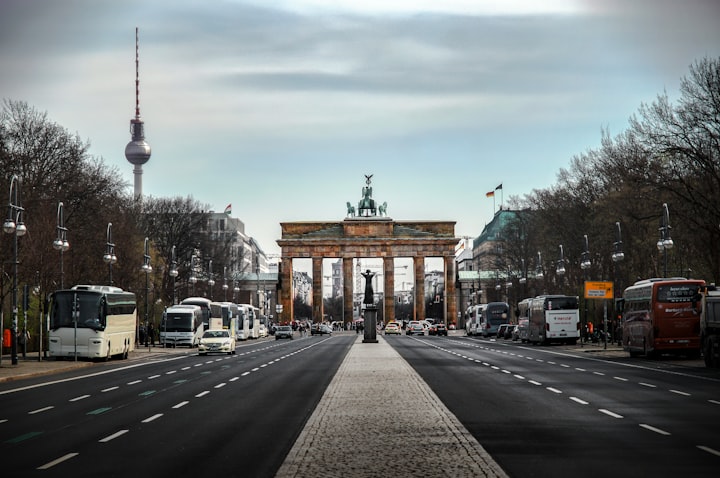Why I Want to Learn the Languages of my Ancestors
Reclaiming ancestral languages as an act of solidarity and liberation

What languages did your ancestors speak? What languages do you speak? What languages do you want to learn? What is lost and what is gained when a family or person switches from their ancestral language to the dominant language of the nation where they live?
On my dad’s side, one set of my great-grandparents spoke German as their first language. But by the time I came along, our family only had vestiges of German. I remember learning to sing a few Christmas carols in German in church, and my father talking about how — in German — our name would have an umlaut over the “a.”
I want to reclaim German, for my genealogy work, for myself, and to make me a better ally to others who want to fight to retain their ancestral languages.
The dominance of English in the USA has pushed many generations of people to lose their ancestral languages and accents in order to assimilate. Nothing against English, but I think something fundamental is lost when an ancestral language is lost.
I invite you to join me. If we recover the languages of our ancestors, we will be rewarded with a richer life and unique connections with our family heritage. And this could be part of a system-wide change. Our example may support others to do the same, and perhaps together, we can change the way people view outsiders in United States' culture.
---
As an amateur genealogist, I dig into records of birth, marriage, and death. I find information in newspapers, church records, censuses, government certificates, and on gravestones. Today, much of that information is available online, especially for people of European heritage, like me. I can open my computer and take a trip into my family’s history. For one side of my family, a lot of the information is in German, and I don't know enough German yet to understand most of the documents. I'd like to change that.
I was lucky to grow up in Wisconsin, where I could learn German in high school (Vielen Dank, Frau Baumore!). Many of my friends and everyone at my church had German last names. My high school marching band was in the Oktoberfest parade every year. German foods and culture are celebrated in Wisconsin, and many Wisconsin communities have a shared sense of pride in German heritage. Here, my ethnicity puts me squarely and comfortably in the majority. There was a time when people were not so comfortable showing their German identity.
As immigrants to the United States in the late 1800s, my German ancestors would have spoken in their birth language for most of their lives. They would have gone to churches that used German, read newspapers in German, and had their own schools where German was the predominant language. The prevalence of German is written in stone on their graves, which often had inscriptions in the language, even generations after arrival.
World War I was the turning point when many people with German ancestry stopped being German and became American. My father told me how his grandfather’s family learned to not speak German outside the home during that time. There were waves of anti-German sentiment. Kids were bullied at school, and there was a need to be Americans first and Germans second. Assimilation was important for safety.
---
Today, we see a similar strong pressure to assimilate for non-English-speaking immigrants.
Language assimilation has long been celebrated in the United States as part of the “melting pot” ideal. Immigrants arrive here with their own languages, and often within a generation, their children speak English with the perfect accent of their region. The second generation becomes “Americanized,” more easily blending in and climbing economic ladders unavailable to the un-Americanized.
It is not just language. Assimilation affects every aspect of life: family structure, clothing, holiday traditions, sports, shared popular culture references, and even ways of thinking. Everything gets subsumed into "American" culture, which also happens to be a majority white space and a majority English-speaking space.
What can be lost in this pressure to assimilate? A lot.
First, full assimilation has only ever been available to people who can pass as white. Japanese-American families who had been in the USA for generations were rounded up and put in concentration camps by the US government during World War II. That they did not round up my German-American ancestors is an example of the type of unacknowledged white privilege that this country was founded on. Asian Americans and other people who cannot pass as white continue to face the prospect of potentially never being able to gain the all benefits of assimilation. It is a trick.
Even for white immigrants, assimilation represents a loss of identity and connection to family. That loss can involve a deliberate rejection of pride in one's family and in oneself. Reclaiming an ancestral language can be part of reclaiming a sense of pride and self-worth.
My partner in life is learning Finnish, the language of her grandmother. She takes such delight in her daily lessons. For people like her, learning the “family language” can be an act of liberation, solidarity, and resistance.
---
When a language is lost, it is not just words that are lost. Each word in a language is not just a translation of an English word. Instead, it is a unique concept that is sometimes only weakly correlated to the English word. To live and think in another language is to live within the concepts of that language and the culture that produced it.
I speak Spanish, having lived for three years in Honduras as a Peace Corps volunteer. I know from experience that I am able to think differently in Spanish, and I feel I am a different person when living in Spanish.
Although many people chose/choose to assimilate, assimilation has also been forced upon people by the US Government as a part of programs that can best be called cultural genocide.
Forced assimilation has been used against Native Americans since the first interactions with settlers. It was official US Government policy until as late as the 1970s to remove children from their families and take them to boarding schools, where they would be punished for speaking their languages. Inherent in this policy was the idea that people would be improved by speaking English, becoming American, and rejecting their own language and culture. The teachers in the boarding schools were trying to “Kill the Indian, to save the man,” with devastating results for the cultures and languages of the tribal nations.
There has always been resistance to this forced assimilation. Today, Native nations have been recovering their ancestral languages, saving the knowledge and culture embedded in those languages. These languages are born of the land and ecosystems of this continent, and they contain ecological wisdom in how to live in this place.
---
Although it was not official government policy, the assimilation of my German ancestors was forced upon them by circumstances. It was a matter of survival and acceptance in their communities. I feel like part of my own resistance to white supremacy culture in the United States is to reach for the identities of my ancestors before they became "white Americans."
We are coming to a new understanding of the USA, not as a melting pot, but as a mosaic. Each person in the mosaic is worthy of self-determination. Each person enriches the whole, not by disappearing, but by shining.
This is an existential question facing the United States: are we a nation that is stronger when people give up their identities in order to assimilate to the universal standard set by the dominant white culture? Or can we thrive as a nation where people focus on their own identities first and foremost?
Why not both? Why not learn English and a second and third ancestral language? Why not celebrate the 4th of July and Octoberfest?
I think many people in the USA feel threatened by the potential of outsiders coming in and diluting the purity of the United States. I disagree with them. The United States that I want to live in is one that is defined by our ideals of freedom and tolerance and not by a single dominant culture.
The dominant culture in the United States is a generic “white culture,” and to claim one’s own ethnicity and language in the midst of this dominant culture is to acknowledge that “white American” is just a construction. And the "American" part is a construction that we can alter in order to be more inclusive of our collective ancestral diversity.
Part of my own genealogy journey is to recognize and own what it means to be white in the United States. I’m not saying that white culture (whatever that is), on the whole, is bad. But I don't think that people should be forced to lose their original languages and customs in order to succeed here.
I imagine a world where people in the United States live in a web of mutual respect. English is useful, and I’m not suggesting people not learn it. What I am asking is that people should not feel pressure to lose their own language and culture as they become fluent in English. Those of us who were born into English, like me, would benefit greatly from learning both our ancestral languages and the languages of people with whom we interact.
What, and who were my ancestors before they became white Americans? Before they were assimilated, they were defined by identities like their language, religion, work, landscape, and ethnicity. Even though it might be a century after the fact, I can resist assimilation by learning my own ancestral languages and finding out where exactly my people came from. It puts me in a better position to recognize and provide acts of solidarity when others are facing the pressure to assimilate.
It feels complicated to me to claim my German-ness, because how can I be proud of my connection to a people complicit in the rise of Hitler and the Holocaust? There is a difference between claiming my German heritage and being proud of my German heritage. Although there are many reasons to be proud of German people and their contribution to the world, there are also plenty of reasons to feel shame about actions taken by Germans in the past.
By claiming my ancestors as my people, I get to simply sit with the truth about their lives. I open myself up to pride and shame and everything in between — feelings and knowledge I might not have had otherwise. As I come closer to connecting with who I am, I put myself in a better position to choose who I want to be.
Ancestry research changed how I see myself, and how I understand history. I am still on this journey and would like you to join me. We are each at the center of our own stories. I start with my own story and I invite readers to send me questions about their family histories.
About the Creator
Andrew Gaertner
I believe that to live in a world of peace and justice we must imagine it first. For this, we need artists and writers. I write to reach for the edges of what is possible for myself and for society.






Comments
There are no comments for this story
Be the first to respond and start the conversation.